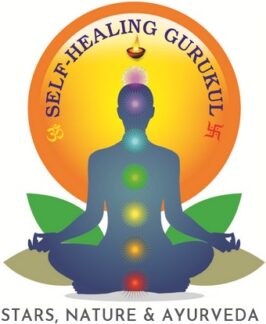
Vedic Astro

Element |
Ether |
Air |
Fire |
Water |
Earth |
Sense Quality |
Ether-sabda |
Air-sparsha |
Sight-roop |
Taste-rasha |
Smell-gandha |
Sense Organ |
Ears |
Skin |
Eyes |
Tongue |
Nose |
Motor Organ |
Voice |
Hands |
Feet |
Urinogenital |
Anus |
Dosha |
Vata |
Vata |
Pitta |
Kapha |
Kapha |
Planet |
Jupiter |
Saturn & Rahu |
Mars, Sun, Ketu |
Moon & Venus |
Mercury |
Vata |
Pitta |
Kapha |
|
Physical Constitution |
|||
Frame |
thin, lanky, boney and taller or shorter than average |
average build and size, weight centered in middle |
heavy, stocky, broad and either very tall or very short |
Weight |
low, difficulties in gaining weight |
moderate, no difficulties in gaining or loosing weight |
heavy, difficulties in loosing weight |
Appetite |
unpredictable, irregular, variable |
strong, cannot skip meals and will have to eat again after 3 or 4 hours |
constant but can skip meals easily and tolerate hunger and thirst |
Amount of Food |
very variable, sometimes a lot, sometimes a little |
usually a lot, can eat large quantities at once |
usually not much, can feel full with a little |
Skin Texture |
thin and dry, cool to touch, rough |
smooth and warm, oily T-zone |
thick and moist/greasy, cold |
Complexion |
dark, tans easily |
fair with freckles, moles, prone to sunburn |
pale and hardly tans |
Hair |
dry, brittle and curly/frizzy |
soft, straight and fine |
thick and weavy, tends to get greasy |
Eyes |
small and dry, blink a lot |
penetrating gaze, reddish sclerae |
large and moist, white sclerae |
Lips |
thin and dry, often chapped |
pink and soft |
full and smooth |
Teeth |
crooked, irregular with receding gums |
yellowish, gums easily bleed |
large, white and straight |
Fingers & Nails |
delicate, small and long fingers with chipped nails |
regular fingers with pink and soft nails |
wide, angular fingers with large and hard nails |
Voice |
low volume, hoarse and cracking |
loud and sharp |
pleasant, harmonious, low pitch |
Body Temperature |
feels colder than others; cold feet and hands |
feels hotter that others; palms, feet and face warm or hot |
normal, palms and feet cool |
Perspiration |
scanty with little odour |
intense during physical activities or when it gets hot, sharp smell |
constant and moderate, sweet smell |
Sleep |
light sleeper, awakes easily and may have difficulties falling asleep |
sleeps deep and even, hardly needs more than 8 hours sleep |
long and sound sleeper, has difficulties awakening even after long hours of sleep |
Walk |
fast with a light step |
average speed, determined step |
slow pace, steady step |
Weather |
prefers warm climates, dislikes windy dry and cold days |
prefers cooler climates, dislikes heat |
adaptable to most climates but can’t stand cold and rainy days |
Mental Constitution |
|||
Temperament |
lively and enthusiastic, likes to change |
purposeful and intense, likes to convince |
easy going and accepting, likes to support |
Social |
independent but insecure, nervous in new situations |
outgoing, assertive, accessible, leader nature |
follower, good listener, accommodating, lots of friends |
Negative Traits |
uncertain and jumpy |
furious and bossy |
greedy and possessive |
Under Stress |
becomes anxious and worried |
becomes irritable and aggressive |
becomes withdrawn and passive |
Talk |
very talkative; fast, diffused speaking |
talkative, good speaker, good at arguments |
slow, steady speaker, limited speech, cautious |
Memory |
short attention span, forgets things easily |
moderate, remembers details clearly and forgets rather slowly |
excellent long-term memory, hardly forgets anything |
Learning Type |
mainly verbal, might have difficulties in truly understanding |
lots of visual imagery, learns efficiently |
feelings and emotions involved, usually grasping late but ultimately understanding well |
Dreams |
flying, searching, restless, prone to nightmares |
fighting, violent, passionate and colorful |
few, sentimental, romantic, watery, sad |
Love |
falls in and out of love easily |
intense, passionate love affairs |
long term relationships full of affection and love |
Creativity |
distinct and detailed ideas in many areas |
inventive in technical or scientific areas |
creative when dealing with business things |
Decisions |
making decisions often feels like a problematic and difficult process |
makes decisions quickly and determined |
take their time to think things through |
Interests |
travelling, dancing, arts |
sports, politics, luxury |
business, food, literature |
Finances |
spends easily, doesn’t save much and often feels poor |
spends money on certain chosen things, luxury |
saves money, spends freely on food and entertainment |
Activity |
hyperactive, restless |
active, enjoys exercise and competition |
somewhat lethargic |
Sex Drive |
extreme or none at all |
passionate and dominating |
constant and loyal |
Beliefs |
erratic, rebel, changing |
determined, strong principles |
permanent, doesn’t change easily |
Lifestyle |
erratic, free and unattached |
bustling, well planned |
regular, gets into a rut easily |
